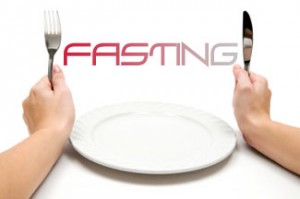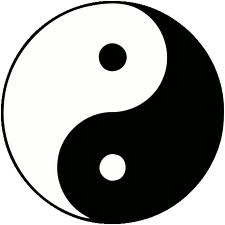Fasting for Fat Loss

Fasting – How to do it Properly
Fasting is a type of diet management wherein you spend long periods of low intake or no intake of food at all. This type of diet management generally gained negative reception after all the news about eating disorders. However in recent months, fasting for fat loss is slowly coming back into the fitness world.
Fasting to help Burn Fat
When it was the public enemy of the fitness world, people avoided it for good reasons. Uncontrolled fasting leads to muscle wasting. It can also become an eating disorder leading to Anorexia Nervosa and Bulimia Nervosa. These two are NOT your friends in weight loss. Anorexia and Bulimia can lead to a lot of complications and may even cause death.
Why is Fasting Popular Right Now?
You might be thinking right now, how could dangerous diet management like this is become popular again?? They keyword here is “CONTROLLED”. Basically, everyone who sleeps at least 6 to 8 hours every night is “fasting”. It’s normal for humans to do fasting after all!
The unorthodox diet management is slowly being understood by dietitians and nutritionists as a useful way in helping obese people shed excess fat. Several studies have made an impact in the fitness world and people are now informed on how to use fasting for their benefit.
Fasting can Help Burn Fat
This should be emphasized. The diet management is meant to help burn excess fat. The harmful side of this diet management comes when one tries “losing weight” instead of “losing fat”. There’s a big difference between the two and knowing the difference can save your life and your hard earned muscles.
WEIGHT is Not the Enemy
It never was. Many people have a distorted view of obesity. They see the mounds of fat but refuse to acknowledge it, preferring instead to look at the weighing scale. Weight is just a number to help you determine if you have an unhealthy amount of fat deposits in your body.
Many people know that fat tissue accumulation is the problem but still blame weight gains. It’s not a good practice and will lead to eating disorders if you’re not careful. Controlled fasting for fat loss has to be done to minimize damaging side effects.
How Fasting Can Help You Lose Fat
Recently, a study published by Dr Emma Stevenson and Javier Gonzalez investigated this issue. The study consisted for four tests.
- Rest without breakfast (FR)
- Exercise without breakfast (FE)
- Breakfast followed by rest (BR)
- Breakfast followed by exercise (BE)
The study aimed to discover how nightly fasting and early morning breakfast and exercise affects individuals in terms of fat loss. 12 healthy and active males continued overnight fast and then were randomly assigned to the four tests. After the tests, the groups were then treated to lunch, told to consume as much as possible until they felt full. Then their energy balances were measured.
Just some quick info before we continue:
The Role of Energy Balance in Fasting

Understanding Energy Balance
Positive Energy Balance – Overfeeding or under exercise. Generally, a slightly positive energy balance is useful to help grow muscles.
It also insulates our body with fat which can be used for emergency energy. Chronic positive energy balance WILL lead to obesity.
Negative Energy Balance – Low or nearly zero intake of calories or over exercising. In times of crisis or a missed meal, your body will dip into fat reserves to compensate for the negative energy balance.
This is why no one dies after skipping a meal or two. Chronic negative energy balance will use up fat reserves AND protein from your muscles.
The Study Results!
The results of the study showed that those who exercised after overnight fasting didn’t experience increased appetite. People usually think that if you exercise in the morning, you will be hungry by lunch.
For the group that exercised without breakfast burned almost 20% more fat compared to the group that had breakfast before exercise! Gonzalez postulated that exercise causes a negative energy balance and more fat stores are burned up especially if the exercise is done after an overnight fast. He also stated that exercise early in the morning won’t trigger hunger pangs throughout the day so it’s best to take advantage of this.
What about Cortisol?!
Now here’s the whammy, cortisol is a bad hormone. It promotes catabolism or the breakdown of cells. It also tells our body to produce a lot of myostatin, a hormone that can breakdown muscle cells easily.
Unfortunately, while we fast overnight, cortisol levels slowly creep up. And here’s the double whammy, after a 1 hour cardio, cortisol levels also increase! Many have learned of this fact and are now echoing decades of fear against fasting.
Get Over the Cortisol Fear with Fasting
Here’s the thing about cortisol. We all have it. The level of one person will differ from another which is affected by the way we live. Just think about it, every night cortisol levels increase but you don’t see the average Joe losing muscle. Cortisol is just one of the many hormones that exist in our body. There’s another hormone that increases during night and it’s Growth Hormone.

Exercise, Cortisol and Fasting
Exercise and cortisol relationship have been studied for years. Aerobic exercise might increase cortisol levels after 1 hour but so does weight lifting! In fact, weight lifting causes more cortisol to be released in the long run.
Bodybuilders and athletes have been going around cortisol with various methods. One is sufficient rest after workout. Two is maintaining proper nutrition and supplementation. Finally, our body adapts easily so the next fasting and exercise combo won’t produce the same amount of cortisol.
Finally, this regimen might be better off for individuals who are overweight and obese and have a lot of fat tissue to burn. If you really want to follow this exercise but want to avoid cortisol issues, you might want to follow the Fasted Training Protocol. It’s basically taking a pre workout supplement such as Dexaprine, a pre workout protein drink and then post workout supplementation/meal.
There’s fat loss and there’s muscular growth. Bodybuilding usually combines both but it’s best to know the difference between the two. It will help you understand how to use fasting for fat loss.
References:
- Gonzalez JT, Veasey RC, Rumbold PL, Stevenson EJ., “Breakfast and exercise contingently affect postprandial metabolism and energy balance in physically active males.”
- B.H. Brummett, PhD., S.H. Boyle, PhD., C.M. Kuhn, Ph.D., I.C. Siegler, Ph.D., M.P.H., and R.B. Williams, M.D., “Positive Affect is Associated with Cardiovascular Reactivity, Norepinephrine Level, and Morning Rise in Salivary Cortisol”
- Pauline Nordin, “Control Your Cortisol: A Leading Muscle-Science Expert’s How-To Guide”
- Himeno A, Satoh-Asahara N, Usui T, Wada H, Tochiya M, Kono S, Yamada-Goto N, Katsuura G, Hasegawa K, Nakao K, Shimatsu A., “Salivary cortisol levels are associated with outcomes of weight reduction therapy in obese Japanese patients.”
- Precise Nutrition – All About Energy Balance
Comments (2)
Leave a comment
Your email address will not be shared or published. Required fields are marked *
October 24, 2015 at 3:54 am
Nice marketing piece. Sounds great only if you have enough thyroid hormones. Otherwise you will spike cortisol..always..
Iodine and organ meat..here is your solution for fasting
November 6, 2015 at 10:59 am
Thanks, very informative and looks great. My only criticism is that cortisol is not a “bad” hormone. It is a hormone with a purpose, like estrogen or aldosterone. When out of balance it may have a negative impact on our health, but this does not negate its benefits when it’s doing the job it’s made to do.